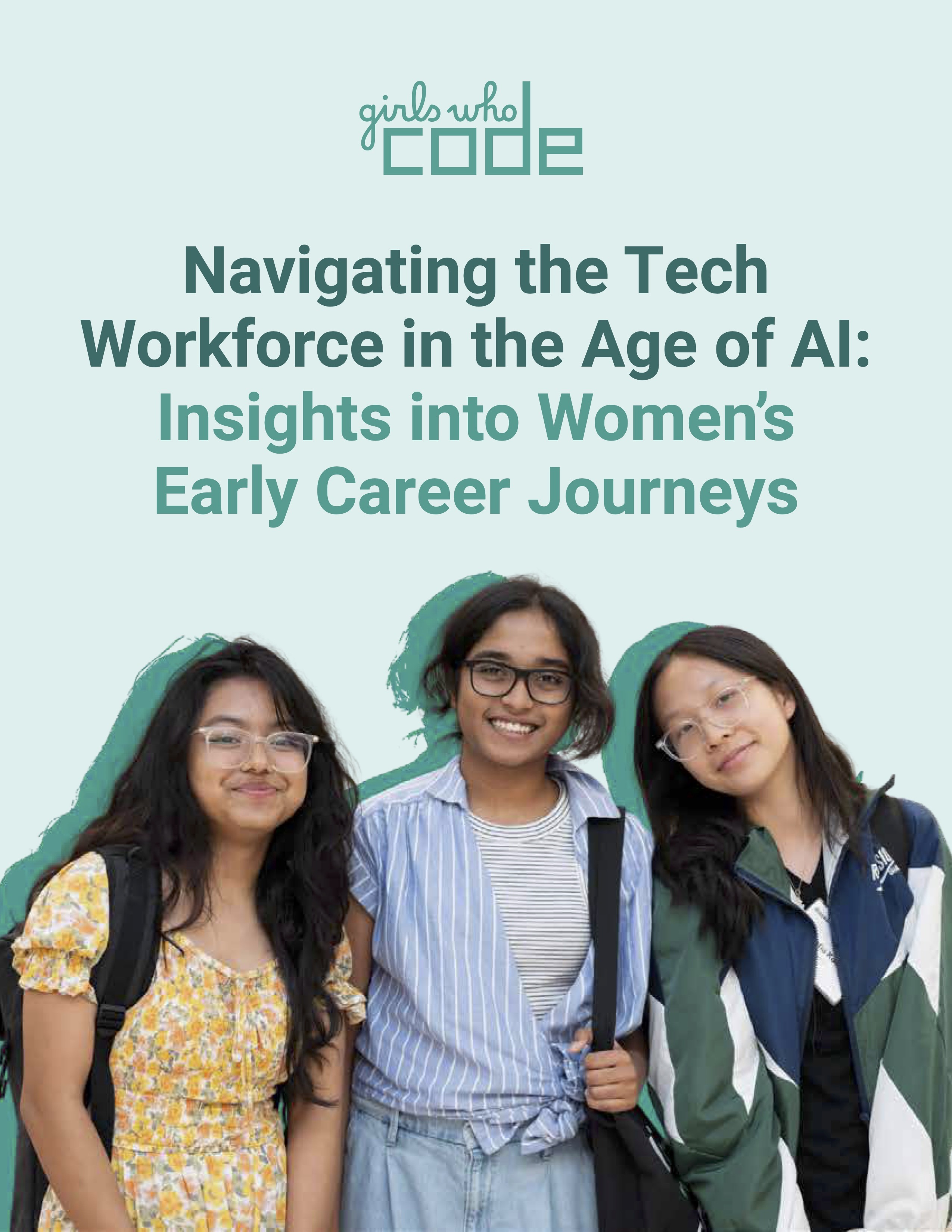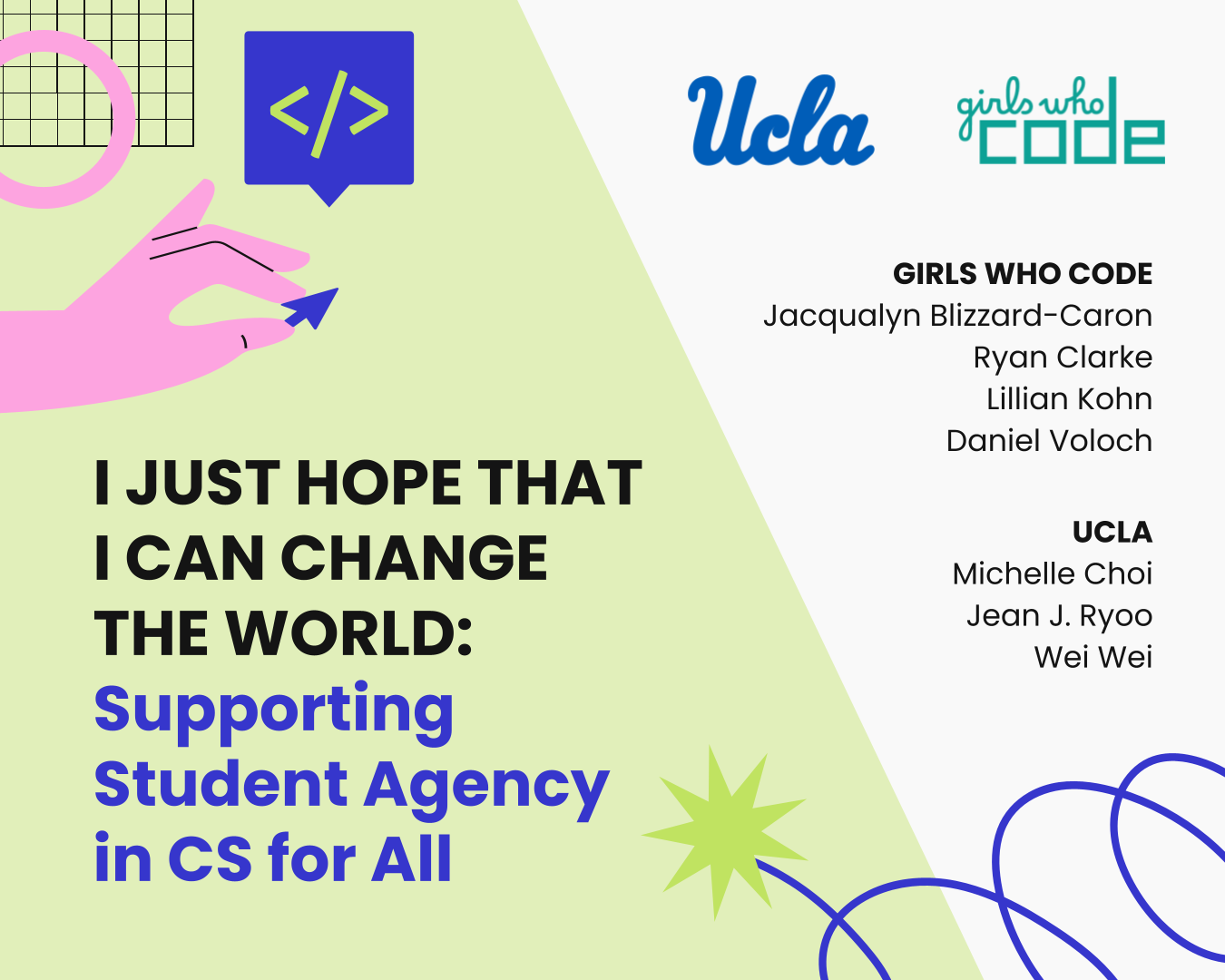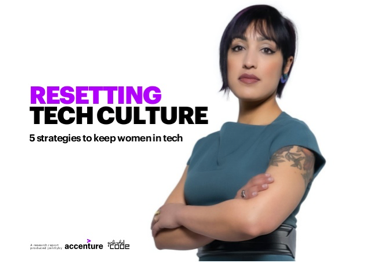Our research shows we can close the gender gap in new entry-level tech jobs by 2030. And we're committed to evaluating our work, and industry data, to get us there.
760,000
girls, women and nonbinary individuals served
Our programs have served 760,000 girls, women and nonbinary individuals across the country and around the world since 2012.
50%
Historically Underrepresented Groups
Over half of the girls we serve come from historically underrepresented groups.
5X
The National Average
Our alumni are earning computer science and related degrees at 5x the national average.
Women represent only 22% of cybersecurity professionals globally—a gender gap even more pronounced than in the overall tech workforce where 27% of jobs are held by women. While existing research has focused on the barriers facing women in pursuing and thriving in cybersecurity jobs, and what young people know and think about cybersecurity, there is a lack of research specifically focused on girls and cybersecurity. To address this gap in the research, Girls Who Code conducted a national survey of 2,105 teens to better understand girls’ awareness and attitudes around cybersecurity, as well as what conditions might support them to pursue cybersecurity as a profession.
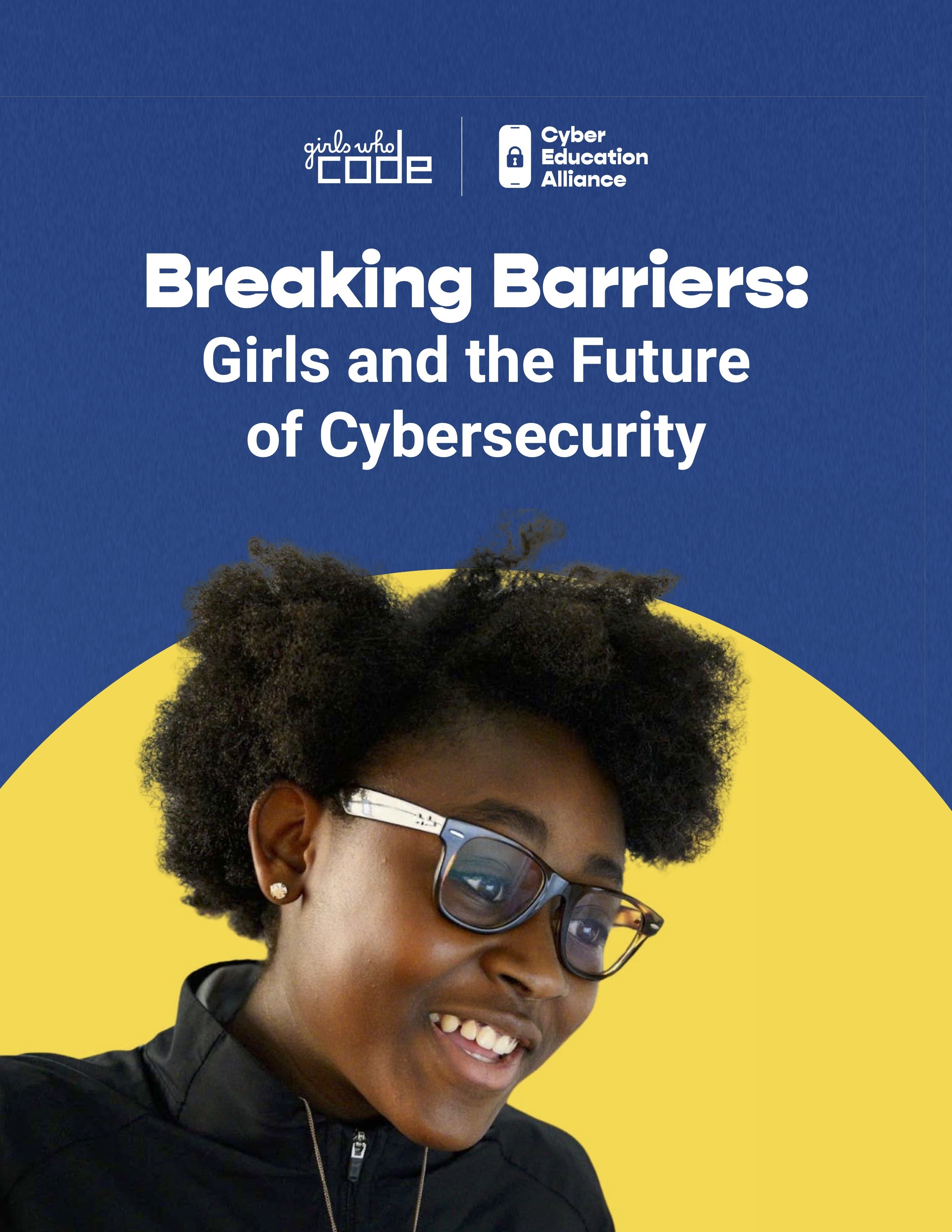
Generative AI (GenAI) has become ubiquitous, yet many students still lack meaningful access to learning about what it is and how it works. With Stuart Foundation funding, Girls Who Code and UCLA’s Computer Science Equity Project conducted a study in 2024 to investigate how adolescents are making sense of GenAI and its impacts on their identities, futures, and actions. The Girls Who Code Self-Paced Program (which has since evolved into the Pathways Program) introduces GenAI topics and practices to high school students while centering questions of ethics and social impacts. To investigate students’ perspectives on AI, we conducted 15 program observations, analyzed 320 students’ AI reflection projects, and led in-depth interviews with 25 students from across the state of California.
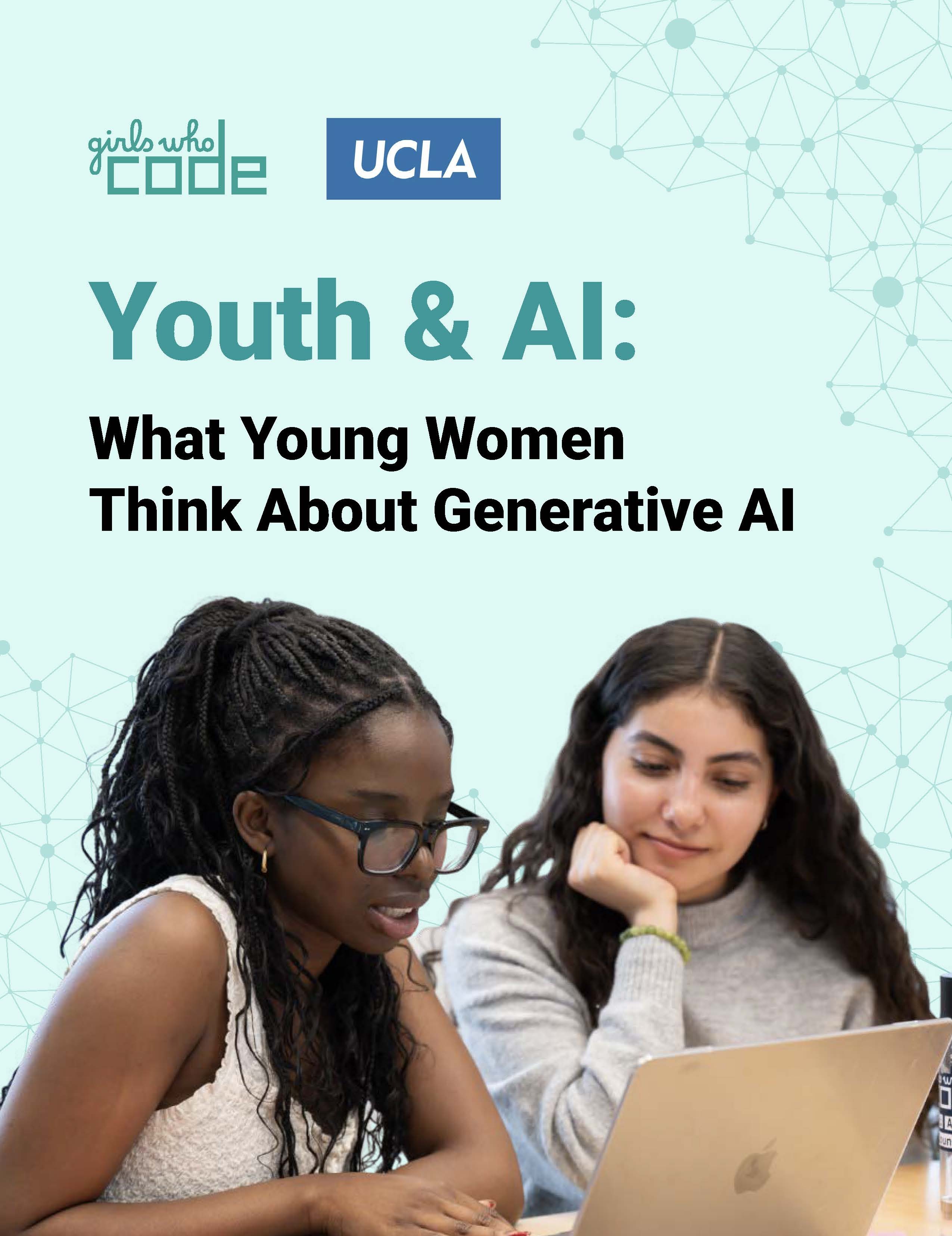
This two-year study explores the experiences of Girls Who Code alumni as they begin their careers in the tech industry. Against a backdrop of industry-wide shifts including evolving market demands, and the rapid rise of AI, the report uncovers the barriers women and nonbinary technologists face, the resources that support their success, and the risks AI poses in reinforcing existing inequities. By centering the voices of early-career professionals, this research highlights what it takes not just to enter the tech workforce, but to persist and thrive in it, and offers key recommendations for employers to advance equity in the age of AI.
